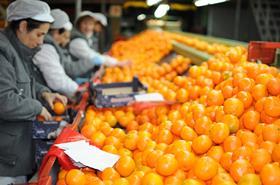
South African sources say Spanish producers should take a different look at their present early season marketing problems, and rather than seeking intervention and protectionism, they should get rid of less favoured varieties which consumers simply do not want anymore.
The South African reaction relates to reports of a poor start to the new Spanish citrus season which is being blamed on the increased availability of Southern Hemisphere citrus – in particular from South Africa.
The reports say the Spanish government is to act to ease pressure on the market after what producers are calling a disastrous start to the 2018/19 campaign.
Elena Cebrián, the minister of agriculture for Valencia, went even further than that by urging that national government to demand that Brussels activate the safeguard clause in its agreement with South Africa which grants preferential treatment for citrus imports and will lead to the elimination of tariffs over the next five years.
Cebrián said the European Commission should monitor the commercial and phytosanitary impact of its agreement with South Africa more closely in order to protect EU growers.
“Same old news – most people ignore it now,” says Justin Chadwick of the South African Citrus Growers’ Association (CGA). “The truth is that later mandarins are replacing less favoured satsuma and clementine varieties. It is happening to Spanish producers at the beginning of their season and it is happening to South Africa at the beginning of our season.”
Chadwick says the better solution would be orchard replacement with varieties that the consumer wants. “The bad solution would be to try to get media coverage to force consumers to buy what they don’t want by calling for protection.”
It is well known that South African citrus struggles at the beginning of its marketing season in Europe because exporters open the market with satsumas.
Across the industry there are multiple efforts to improve the variety offer at the start of the season to the same standard of the mid-season offer and the very popular late mandarins, which is a fast growing sector.
In other product categories such as stonefruit and table grapes, South Africans have worked hard over the past two decades to improve their variety offer.
The table grape industry has just about completely switched over to seedless varieties – and older seedless varieties are already being replaced by a new generation of better-tasting fruit.
Stonefruit growers have addressed the taste and appeal of their varieties and the industry is now completely different from a year ago.
“We need to realise that consumers will always demand and choose the better tasting varieties and there is nothing we can do about it,' Chadwick adds. 'It seems as it will be much better to focus on improving the Spanish early season offer, just as we have to find new varieties in our early season.'



